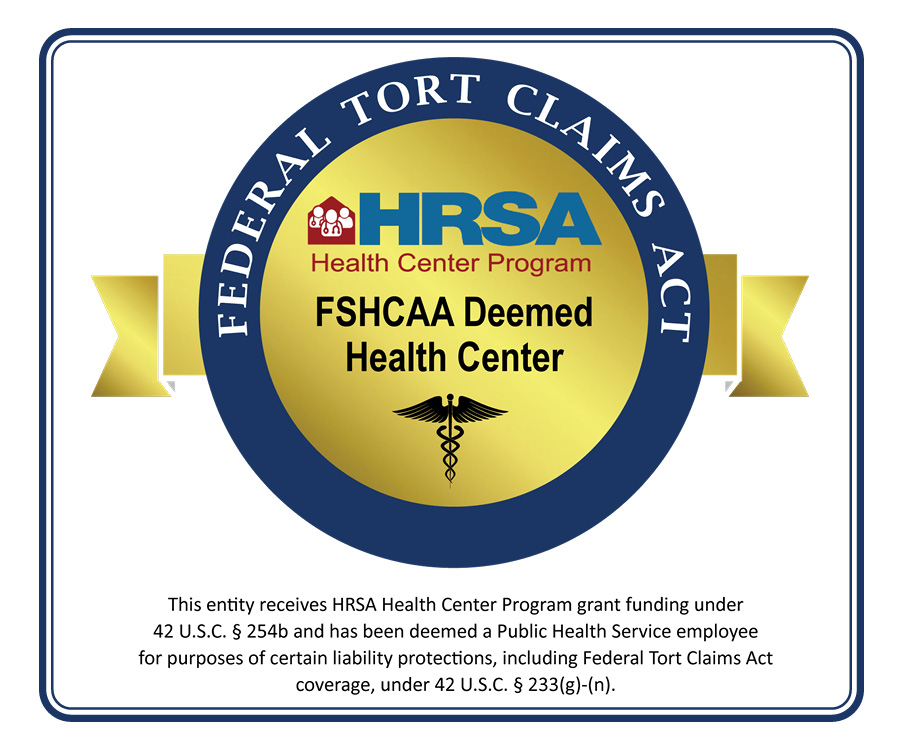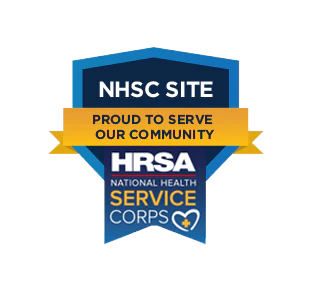Women's Health
We value you and your baby’s health and we want to provide the highest level of Obstetrical and Gynecological Care.
Personalized Care for You and Your Baby

Prenatal Care
Expert care needed to ensure that mommy-to-be and baby are healthy

Pelvic & Breast Exams
Pap smears to help detect cervical or vaginal cancer in its early stages and breast exams to help detect signs of breast cancer.

Family Planning & Birth Control
Birth control options needed to plan ahead, including family planning guidance from a provider.

Teen Gynecology
Teens discuss common health issues they might have, including periods, sexual activity, infections, and general questions about a developing body.

Irregular Bleeding Treatment
Having irregular periods is common. Discuss how it may be affecting your body and possible treatment options.

Menopause
Discuss your menopause symptoms and how to take care of yourself during this change.

Referrals for mammograms & gynecological surgeries
After your mammogram or gynecological surgery, get post-care from a primary care physician.

Pregnancy Guidance & Infertility
Get guidance on your pregnancy journey with guidance (counseling), medication, and other pregnancy planning services.

Wellness Exams & More
A full physical exam, blood tests, screenings, vaccinations, counseling, and more.
We Can Assist with Referrals!
If you are a referring provider’s office needing referral assistance or a provider needing to speak to an on-call OB Coordinator, please contact us or fill out the form below.

Frequently Asked Questions
Nausea and vomiting of pregnancy usually starts before 9 weeks of pregnancy. For most women, it goes away by the second trimester (14 weeks of pregnancy). For some women, it lasts for several weeks or months. For a few women, it lasts throughout the entire pregnancy.
If you have any of the following factors, your risk of severe nausea and vomiting of pregnancy may be increased:
- Being pregnant with more than one baby (multiple pregnancy)
- Past pregnancy with nausea and vomiting (either mild or severe)
- Your mother or sister had severe nausea and vomiting of pregnancy
- History of motion sickness or migraines
- Being pregnant with a female fetus
Could nausea and vomiting during pregnancy be caused by another medical condition? Some medical conditions can cause nausea and vomiting during pregnancy. These include an ulcer, food-related illness, thyroid disease, or gallbladder disease. Your obstetrician may suspect that you have one of these conditions if you have signs or symptoms that do not usually occur with nausea and vomiting of pregnancy:
- Nausea and vomiting that occurs for the first time after 9 weeks of pregnancy
- Abdominal pain or tenderness
- Fever
- Headache
- Enlarged thyroid gland (swelling in the front of the neck)
Having nausea and vomiting of pregnancy usually does not harm your health or your baby’s health. It does not mean your baby is sick. It can become more of a problem if you cannot keep down any food or fluids and begin to lose weight. When this happens, it sometimes can affect the baby’s weight at birth. You also can develop problems with your thyroid, liver, and fluid balance.
Because severe nausea and vomiting of pregnancy is hard to treat and can cause health problems, many experts recommend early treatment so that it does not become severe.
Diet and lifestyle changes may help you feel better. You may need to try more than one of these suggestions:
- Take a multivitamin.
- Try eating dry toast or crackers in the morning before you get out of bed to avoid moving around on an empty stomach.
- Drink fluids often.
- Avoid smells that bother you.
- Eat small, frequent meals instead of three large meals.
- Try bland foods. For example, the “BRATT” diet (bananas, rice, applesauce, toast, and tea) is low in fat and easy to digest.
- Try ginger ale made with real ginger, ginger tea made from fresh grated ginger, ginger capsules, and ginger candies.
- If you do vomit a lot, it can cause some of your tooth enamel to wear away. This happens because your stomach contains a lot of acid. Rinsing your mouth with a teaspoon of baking soda dissolved in a cup of water may help neutralize the acid and protect your teeth.
If diet and lifestyle changes do not help your symptoms, or if you have severe nausea and vomiting of pregnancy, medical treatment may be needed. If other medical conditions are ruled out, certain medications can be given to treat nausea and vomiting of pregnancy: Vitamin B6 and doxylamine – Vitamin B6 is a safe, over-the – counter treatment that may be tried first. Doxylamine, a medication found in over-the-counter sleep aids, may be added if vitamin B6 alone does not relieve symptoms.
A prescription drug that combines vitamin B6 and doxylamine is available. Both drugs-taken alone or together-have been found to be safe to take during pregnancy and have no harmful effects on the baby. “Antiemetic” drugs – If vitamin B6 and doxylamine do not work, “antiemetic” drugs may be prescribed. These drugs prevent vomiting. Many antiemetic drugs have been shown to be safe to use during pregnancy. Others have conflicting or limited safety information. You and your obstetrician or other members of your health care team can discuss all of these factors to determine the best treatment for your personal situation.
You may need to stay in the hospital until your symptoms are under control. Lab tests may be done to check how your liver is working. If you are dehydrated from loss of fluids, you may receive fluids and vitamins through an intravenous line. If your vomiting cannot be controlled, you may need additional medication. If you continue to lose weight, sometimes tube feeding is recommended to ensure that you and your baby are getting enough nutrients.
If you are bleeding in early pregnancy, your health care provider may do a pelvic exam. You will be asked how much blood you have passed and how often bleeding has occurred. Your health care provider also will ask whether you have had any pain, and if so, its location and severity.
A blood test may be done to measure human chorionic gonadotropin (hCG). This substance is made by your body during pregnancy. You may have more than one test because hCG levels increase throughout pregnancy. Your blood type also will be checked to see if you need treatment for Rh sensitization. Ultrasound may be used to find the cause of the bleeding. Sometimes the cause is not found.
Miscarriage can occur any time in the first half of pregnancy. Most often it occurs in the first 13 weeks. It happens in about 15-20% of pregnancies.
The following signs and symptoms may indicate a miscarriage:
- Vaginal bleeding
- Cramping pain felt low in the abdomen (often stronger than menstrual cramps)
- Tissue passing from the vagina
- Many women who have vaginal bleeding have little or no cramping. Sometimes the bleeding stops and pregnancy goes on. Other times the bleeding and cramping may become stronger, leading to miscarriage.
An ectopic pregnancy occurs when the fertilized egg does not implant in the uterus. Instead, it implants somewhere else, often in one of the fallopian tubes. An ectopic pregnancy causes pain and bleeding early in pregnancy.
A major risk with this type of pregnancy occurs if the fallopian tube ruptures. A rupture needs prompt treatment. There may be internal bleeding. Blood loss may cause weakness, fainting, pain, shock, or death.
Ectopic pregnancies are much less common than miscarriages. They occur in about 1 in 60 pregnancies. Women are at a higher risk if they have had an infection in the fallopian tubes (such as pelvic inflammatory disease).
Late in pregnancy, vaginal bleeding may be a sign of labor. A small amount of mucus and blood is passed from the cervix just before or at the start of labor. This is called “bloody show.” It is common. It is not a problem if it happens within 3 weeks of your due date. If it happens earlier, you may be going into preterm labor. Other signs of preterm labor include the following:
- Vaginal discharge
- Change in type of discharge (watery, mucus, or bloody)
- Increase in amount of discharge
- Pressure in the pelvis or lower abdomen
- Low, dull backache
- Stomach cramps, with or without diarrhea
- Regular contractions or uterine tightening
- If you have any of these signs or symptoms, contact your health care provider right away.
If you are pregnant and you smoke, tell your health care provider. He or she can help you find support and quitting programs in your area. You also can call the national “quit line” at 1-800-Quit-Now.
Drugs used after the baby is born can be passed to the baby through breast milk.
Some prescription medications are safe to take during pregnancy. Others have known risks. If you are taking a prescription medication and become pregnant, tell your health care provider. Do not stop taking a medication prescribed for you without first talking to your health care provider.
Medicines sold over the counter, including herbal supplements and vitamins, can cause problems during pregnancy. Pain relievers such as aspirin and ibuprofen may be harmful to a fetus. Check with your health care provider before taking any over-the-counter drug.




















